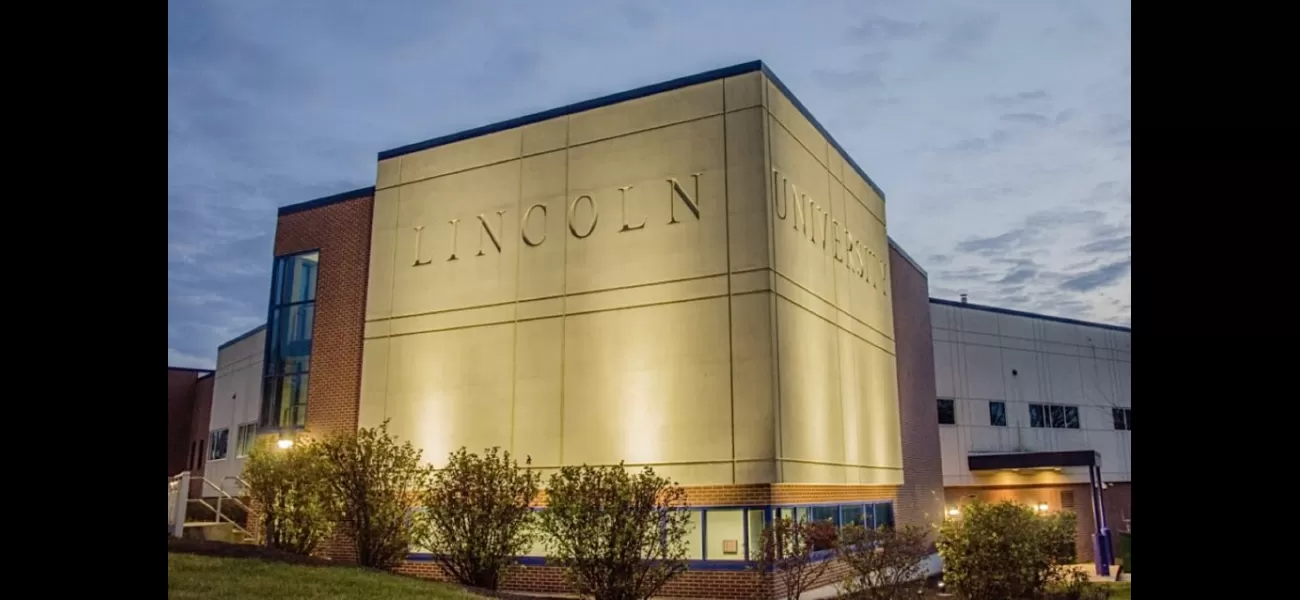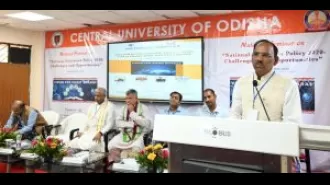Lincoln University and Getty Images collaborate to capture and commemorate 170 years of history through photographs.
Lincoln, along with other partner universities, will retain their current rights and have the opportunity to generate additional income.
March 28th 2024.

On March 21, Lincoln University made an exciting announcement – they had entered into a partnership with Getty Images, the renowned photography company. This collaboration was particularly significant for Lincoln, as it was the first Historically Black College or University (HBCU) in the United States. Founded in 1854, Lincoln had a rich history and was proud to celebrate its 170th anniversary this year. One of the main reasons for teaming up with Getty Images, as stated in their press release, was to document and honor the university's legacy.
Cassandra Illidge, the vice president of Global Content Partnerships and executive director of the HBCU Photo Archive Program at Getty Images, explained that this partnership was an extension of a program they had launched in 2021. "In 2021, Getty Images established the Photo Archive Grants Program for HBCUs, with the goal of preserving historical photos from HBCU's archives and celebrating the traditions and photo coverage of HBCUs today," Illidge stated in the press release. She also mentioned that Lincoln was the newest addition to the list of esteemed HBCUs working with Getty Images, all of whom were committed to safeguarding their intellectual property, increasing access to unique imagery, and bringing attention to rarely seen historical events.
Dr. Brenda A. Allen, the President of Lincoln University, expressed her pride and excitement about this partnership in the press release. "Here at Lincoln University, we are thrilled to join forces with Getty Images, a remarkable milestone in our institution's journey that highlights our legacy and secures our intellectual heritage," Dr. Allen said. "Not only does this collaboration allow us to preserve and share our rich history on a global scale, but it also reinforces our dedication to empowering future generations through the power of visual storytelling."
Like the other HBCUs involved in this program, Lincoln would retain full copyright ownership of their photography. Additionally, they would have the opportunity to generate revenue through this collaboration, which could provide a new source of income for the university and even support scholarships for HBCU students. As stated on the Getty Images website, "HBCUs will keep their existing rights to their work, and all revenue generated from the Collection will support the program, effectively creating a new revenue stream for each HBCU and contributing to scholarships for students attending HBCUs."
In 2023, NPR reported that HBCUs had been underfunded by a staggering $13 billion over the past 30 years. In a letter addressed to the governors of 16 states, Education Secretary Miguel Cardona and Agriculture Secretary Thomas Vilsack emphasized the importance of providing adequate funding to these institutions. They stated that HBCUs would be better equipped to serve their students, states, and the nation as a whole if this funding gap was closed. In light of this, photo archives could prove to be a valuable source of revenue for Lincoln University and other HBCUs, potentially helping them bridge the funding gap and continue to thrive.
This partnership with Getty Images was just one of the positive developments for Lincoln University. In recent years, the university had faced some challenges, including the tragic death of an administrator and allegations of bullying against the president, Dr. Allen. However, in a welcome turn of events, Dr. Allen was cleared of these claims and reinstated as the president, as reported in a related article. With this partnership and other positive developments, Lincoln University was looking towards a bright future, celebrating its rich history and empowering future generations through the power of visual storytelling.
Cassandra Illidge, the vice president of Global Content Partnerships and executive director of the HBCU Photo Archive Program at Getty Images, explained that this partnership was an extension of a program they had launched in 2021. "In 2021, Getty Images established the Photo Archive Grants Program for HBCUs, with the goal of preserving historical photos from HBCU's archives and celebrating the traditions and photo coverage of HBCUs today," Illidge stated in the press release. She also mentioned that Lincoln was the newest addition to the list of esteemed HBCUs working with Getty Images, all of whom were committed to safeguarding their intellectual property, increasing access to unique imagery, and bringing attention to rarely seen historical events.
Dr. Brenda A. Allen, the President of Lincoln University, expressed her pride and excitement about this partnership in the press release. "Here at Lincoln University, we are thrilled to join forces with Getty Images, a remarkable milestone in our institution's journey that highlights our legacy and secures our intellectual heritage," Dr. Allen said. "Not only does this collaboration allow us to preserve and share our rich history on a global scale, but it also reinforces our dedication to empowering future generations through the power of visual storytelling."
Like the other HBCUs involved in this program, Lincoln would retain full copyright ownership of their photography. Additionally, they would have the opportunity to generate revenue through this collaboration, which could provide a new source of income for the university and even support scholarships for HBCU students. As stated on the Getty Images website, "HBCUs will keep their existing rights to their work, and all revenue generated from the Collection will support the program, effectively creating a new revenue stream for each HBCU and contributing to scholarships for students attending HBCUs."
In 2023, NPR reported that HBCUs had been underfunded by a staggering $13 billion over the past 30 years. In a letter addressed to the governors of 16 states, Education Secretary Miguel Cardona and Agriculture Secretary Thomas Vilsack emphasized the importance of providing adequate funding to these institutions. They stated that HBCUs would be better equipped to serve their students, states, and the nation as a whole if this funding gap was closed. In light of this, photo archives could prove to be a valuable source of revenue for Lincoln University and other HBCUs, potentially helping them bridge the funding gap and continue to thrive.
This partnership with Getty Images was just one of the positive developments for Lincoln University. In recent years, the university had faced some challenges, including the tragic death of an administrator and allegations of bullying against the president, Dr. Allen. However, in a welcome turn of events, Dr. Allen was cleared of these claims and reinstated as the president, as reported in a related article. With this partnership and other positive developments, Lincoln University was looking towards a bright future, celebrating its rich history and empowering future generations through the power of visual storytelling.
[This article has been trending online recently and has been generated with AI. Your feed is customized.]
[Generative AI is experimental.]
0
0
Submit Comment





